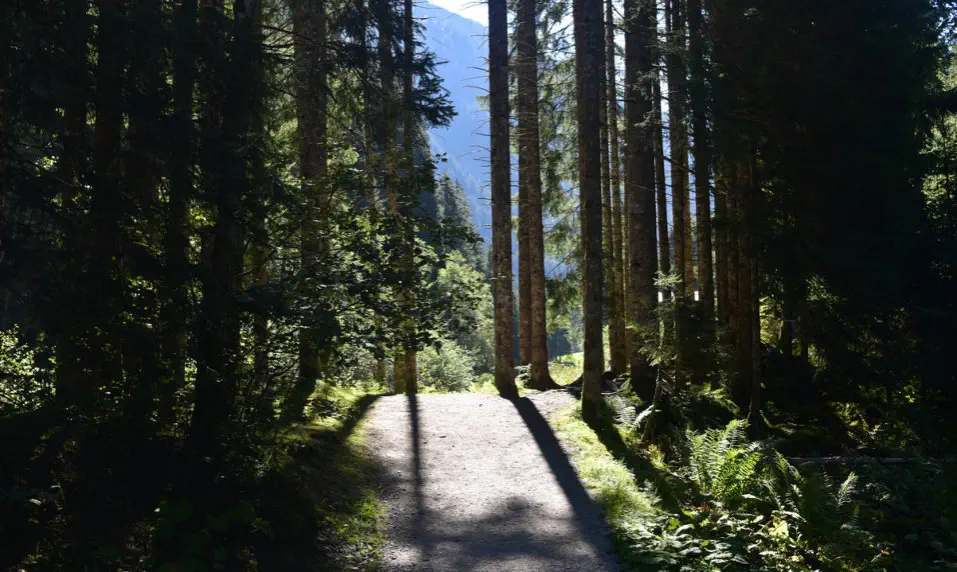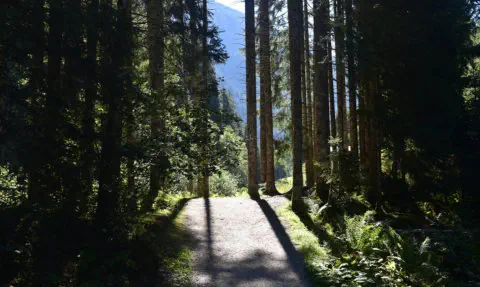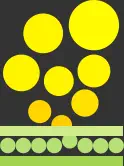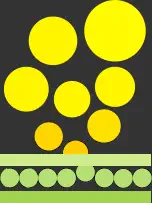Phone +49 160 9623 2547

Alexander Hohmann - Blog
Coaching and More

In his autobiographical book "The World of Yesterday", Austrian writer Stefan Zweig
wondered about an unsettling development. At the beginning of the twentieth century,
he had witnessed how, in a rather affluent and peaceful Viennese society, people had
started to attack each other with growing violence, first with words, then physically.
The disputes seemed to have come out of the blue and then increasingly solidified
into irreconcilable hostilities. There always seemed to be a good reason to fight over.
But the anger appeared to have preceded the cause. The violence engulfed more and
more people, then growing groups, and then turned into outright conflict between
whole countries. We know how it ended, namely in not one, but two world wars.
A hundred years later, we witness something that feels similar and is gaining
momentum. Debates get angry and polarized and participants try to compel
everybody into choosing sides. "If you are not with us, then you are against us."
Anything, a single word taken out of context or a merely insinuated opinion, is enough
to accuse somebody of a whole, ideologically driven "Weltanschauung" and consider
that person as an enemy. The Ego seems to have an increased drive to build itself
some high ground from where it can look down on others as despicable and
fundamentally wrong human beings.
It seems that of all times, those of peace and affluence are particularly prone to
opening these divides, to favour such a "dualism". Just like in physics, where empty
space can suddenly give birth to a particle and its antiparticle. Matter and antimatter.
It seems that humans are dualistic animals. The build-up of one's own self-image
seems to demand to embellish oneself by looking away from one's own dark sides
and repress them. Humans prefer to see only the bright side of themselves. Yet we
also know from Swiss psychologist Carl Gustav Jung that everything we repress
within ourself then appears elsewhere in our life. Where? In our projections on others.
What we repress within ourself, we recognize in our fellow humans. Then we start to
beat them up for it. In our unconscious perception, they represent our own dark side
we want to get rid of.
Peaceful times bear a lack of enemies. So the mind begins telling itself a new
"narrative" about the world, inventing an explanatory model for the world that re-
introduces cleavages and divides in other forms, just like an immune system that has
run out of germs and been idle for too long turns against its own host with a so-called
auto-immune disease. That way, the mind can see new adversaries on some inner
screen while forgetting that it projected them there itself. This "narrative" then
increasingly becomes more dense and calcified, seeking self-confirmation and finding
it everywhere. Then it looks for allies sharing a similar "narrative". Then what started
as a very private inner conflict begins to feel like a truth applicable to the whole world.
The person than gets fused with this "narrative". It becomes part of the "identity"
instead of just being a thought. Questioning their divisive world view becomes
synonymous with questioning their very identity. There it is: the great game of dualism
has recruited another foot soldier.
And when enough "foot soldiers" have gathered on both sides of some mutually
projected divide, the order of magnitude changes, engulfing groups, social classes,
countries, continents...
Think of a see-saw, like on a children's playground. The see-saw has two sides. The
people on the see-saw invite us to join their game. Each side sees itself as the
righteous one and the other side as wrong and bad. Each side is beckoning us to join
them and not the other side, and their reasoning may even seem quite reasonable
and appealing at times. Each side has its tricks to attract our attention and make us
feel guilty if we do not choose any side. ("If you take no side, that means you are on
their side!") There is much energy spent on the see-saw. Each side tries to reach the
high ground by pushing down the other side into the dirt. Emotions overheat. The see-
saw squeaks a lot.
And yet, the people on the see-saw remain in the same spot all the time, treading
water.
Boundaries and inside-outside-distinctions are essential for all living systems. A living
system can determine its own identity only if it can tell what belongs to itself from what
is on the "outside". A dualistic view is insofar a built-in human feature. But once it
becomes an end in itself, things become more dangerous.
As deeply rooted in humans as dualism seems, as growingly clear the price to pay
appears when so much falls apart into opposites.
How do we end this game?
By choosing not to follow the invitations to sit on one side of the see-saw. Because if we do choose a side, not only do we reinforce that side, but we actually strengthen the whole game entirely. Attention is energy. This energy feeds that on which it is focussed. If we focus it on the divide, we are likely to only spread it further. Therefore the real choice does not reside in choosing one side or the other on the see-saw, but in whether we enter the game at all or stay out of it. Once we step away, we see the game as a whole. And perhaps we then start to see through it. But stepping off the see-saw is not that easy. Because overcoming our own dualism means overcoming our own inner divisions. That in turns implies that we take responsibility for our dark side, instead of projecting it away on others. Otherwise we stay on the see-saw. How do we break free from there? A good step forward is to explore the dark and unsavoury corners of ourself and look out for the dark twin that so eagerly hides behind other people's faces (through projection). A good step forward also resides in becoming aware of the multiplicity of our inner personality parts, and to especially honour those parts left behind in pain at some point of our life. (We often lose sight of them. They remain invisible, which is their way of protecting us from pain. But they still carry that burden and manifest themselves again in our life, often in indirect ways, like feeling stuck or experiencing recurring adverse experiences.) All this can open onto the realisation that we are not who we thought we were. That naturally entails some temporary confusion. It may shake our supposed "identity" once we realise that it perhaps merely is a "narrative". It makes it easier to do this step by step, in benevolent company, with caution, care and in mutual respect. Otherwise these inner parts hide again (hiding is what they know best). Honesty is an indispensable ingredient here. Honesty with oneself. Only with true honesty can we stop looking the other way. Only from honesty can a solid discernment emerge, a discernment that lets us look upon others more mildly and benevolently, without projecting on them any more. Honesty is the ground on which our various inner parts can start negotiating with each other and the inner divide between light and shadow start being overcome, step by step. The inner divisions can begin to heal. The inner togetherness lightens up. An inner wholeness comes into sight. An important and deeply personal step has been accomplished in one's self- development. Now we begin to nourish the bigger picture and greater unity instead of the small divisions. Dualism has lost a foot soldier and weakens. Maybe someday it will have no army left at all?
E-Mail:
Alexander Hohmann
Life & Business Coach in
Freiburg or Online
Certified Systemic Coach
(English / German / French)

In his autobiographical book "The World of
Yesterday", Austrian writer Stefan Zweig
wondered about an unsettling development.
At the beginning of the twentieth century, he
had witnessed how, in a rather affluent and
peaceful Viennese society, people had
started to attack each other with growing
violence, first with words, then physically.
The disputes seemed to have come out of
the blue and then increasingly solidified into
irreconcilable hostilities. There always
seemed to be a good reason to fight over.
But the anger appeared to have preceded
the cause. The violence engulfed more and
more people, then growing groups, and then
turned into outright conflict between whole
countries. We know how it ended, namely in
not one, but two world wars.
A hundred years later, we witness
something that feels similar and is gaining
momentum. Debates get angry and
polarized and participants try to compel
everybody into choosing sides. "If you are
not with us, then you are against us."
Anything, a single word taken out of context
or a merely insinuated opinion, is enough to
accuse somebody of a whole, ideologically
driven "Weltanschauung" and consider that
person as an enemy. The Ego seems to
have an increased drive to build itself some
high ground from where it can look down on
others as despicable and fundamentally
wrong human beings.
It seems that of all times, those of peace
and affluence are particularly prone to
opening these divides, to favour such a
"dualism". Just like in physics, where empty
space can suddenly give birth to a particle
and its antiparticle. Matter and antimatter.
It seems that humans are dualistic animals.
The build-up of one's own self-image seems
to demand to embellish oneself by looking
away from one's own dark sides and
repress them. Humans prefer to see only
the bright side of themselves. Yet we also
know from Swiss psychologist Carl Gustav
Jung that everything we repress within
ourself then appears elsewhere in our life.
Where? In our projections on others. What
we repress within ourself, we recognize in
our fellow humans. Then we start to beat
them up for it. In our unconscious
perception, they represent our own dark
side we want to get rid of.
Peaceful times bear a lack of enemies. So
the mind begins telling itself a new
"narrative" about the world, inventing an
explanatory model for the world that re-
introduces cleavages and divides in other
forms, just like an immune system that has
run out of germs and been idle for too long
turns against its own host with a so-called
auto-immune disease. That way, the mind
can see new adversaries on some inner
screen while forgetting that it projected them
there itself. This "narrative" then
increasingly becomes more dense and
calcified, seeking self-confirmation and
finding it everywhere. Then it looks for allies
sharing a similar "narrative". Then what
started as a very private inner conflict
begins to feel like a truth applicable to the
whole world.
The person than gets fused with this
"narrative". It becomes part of the "identity"
instead of just being a thought. Questioning
their divisive world view becomes
synonymous with questioning their very
identity. There it is: the great game of
dualism has recruited another foot soldier.
And when enough "foot soldiers" have
gathered on both sides of some mutually
projected divide, the order of magnitude
changes, engulfing groups, social classes,
countries, continents...
Think of a see-saw, like on a children's
playground. The see-saw has two sides.
The people on the see-saw invite us to join
their game. Each side sees itself as the
righteous one and the other side as wrong
and bad. Each side is beckoning us to join
them and not the other side, and their
reasoning may even seem quite reasonable
and appealing at times. Each side has its
tricks to attract our attention and make us
feel guilty if we do not choose any side. ("If
you take no side, that means you are on
their side!") There is much energy spent on
the see-saw. Each side tries to reach the
high ground by pushing down the other side
into the dirt. Emotions overheat. The see-
saw squeaks a lot.
And yet, the people on the see-saw remain
in the same spot all the time, treading water.
Boundaries and inside-outside-distinctions
are essential for all living systems. A living
system can determine its own identity only if
it can tell what belongs to itself from what is
on the "outside". A dualistic view is insofar a
built-in human feature. But once it becomes
an end in itself, things become more
dangerous.
As deeply rooted in humans as dualism
seems, as growingly clear the price to pay
appears when so much falls apart into
opposites.
How do we end this game?
By choosing not to follow the invitations to sit on one side of the see-saw. Because if we do choose a side, not only do we reinforce that side, but we actually strengthen the whole game entirely. Attention is energy. This energy feeds that on which it is focussed. If we focus it on the divide, we are likely to only spread it further. Therefore the real choice does not reside in choosing one side or the other on the see- saw, but in whether we enter the game at all or stay out of it. Once we step away, we see the game as a whole. And perhaps we then start to see through it. But stepping off the see-saw is not that easy. Because overcoming our own dualism means overcoming our own inner divisions. That in turns implies that we take responsibility for our dark side, instead of projecting it away on others. Otherwise we stay on the see-saw. How do we break free from there? A good step forward is to explore the dark and unsavoury corners of ourself and look out for the dark twin that so eagerly hides behind other people's faces (through projection). A good step forward also resides in becoming aware of the multiplicity of our inner personality parts, and to especially honour those parts left behind in pain at some point of our life. (We often lose sight of them. They remain invisible, which is their way of protecting us from pain. But they still carry that burden and manifest themselves again in our life, often in indirect ways, like feeling stuck or experiencing recurring adverse experiences.) All this can open onto the realisation that we are not who we thought we were. That naturally entails some temporary confusion. It may shake our supposed "identity" once we realise that it perhaps merely is a "narrative". It makes it easier to do this step by step, in benevolent company, with caution, care and in mutual respect. Otherwise these inner parts hide again (hiding is what they know best). Honesty is an indispensable ingredient here. Honesty with oneself. Only with true honesty can we stop looking the other way. Only from honesty can a solid discernment emerge, a discernment that lets us look upon others more mildly and benevolently, without projecting on them any more. Honesty is the ground on which our various inner parts can start negotiating with each other and the inner divide between light and shadow start being overcome, step by step. The inner divisions can begin to heal. The inner togetherness lightens up. An inner wholeness comes into sight. An important and deeply personal step has been accomplished in one's self-development. Now we begin to nourish the bigger picture and greater unity instead of the small divisions. Dualism has lost a foot soldier and weakens. Maybe someday it will have no army left at all?












